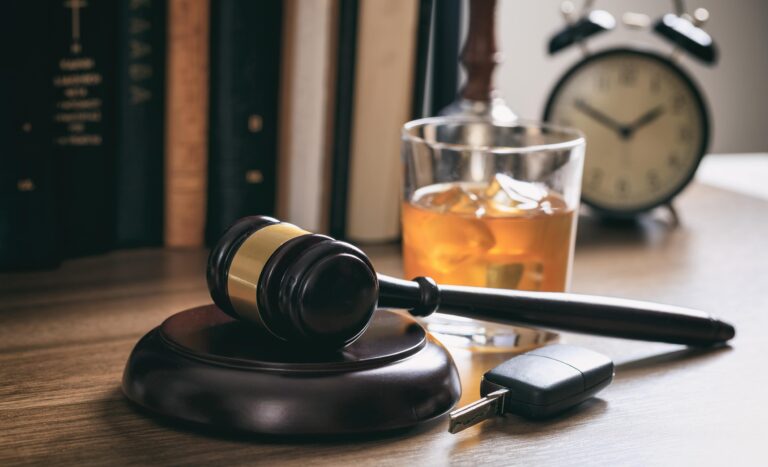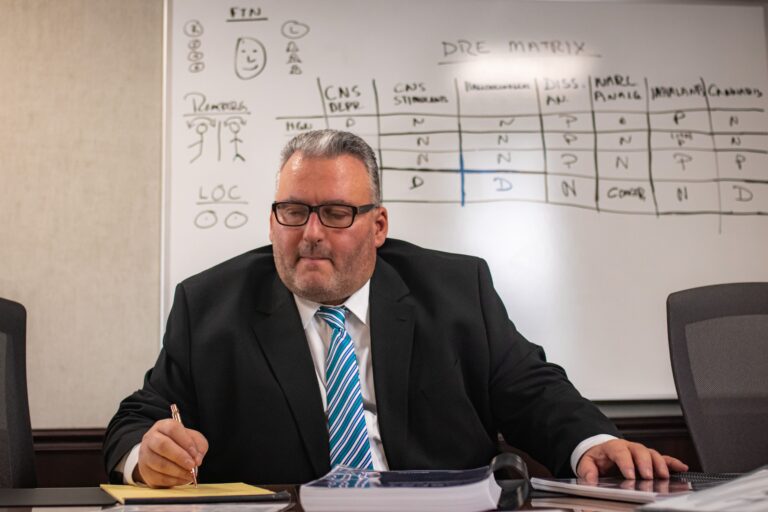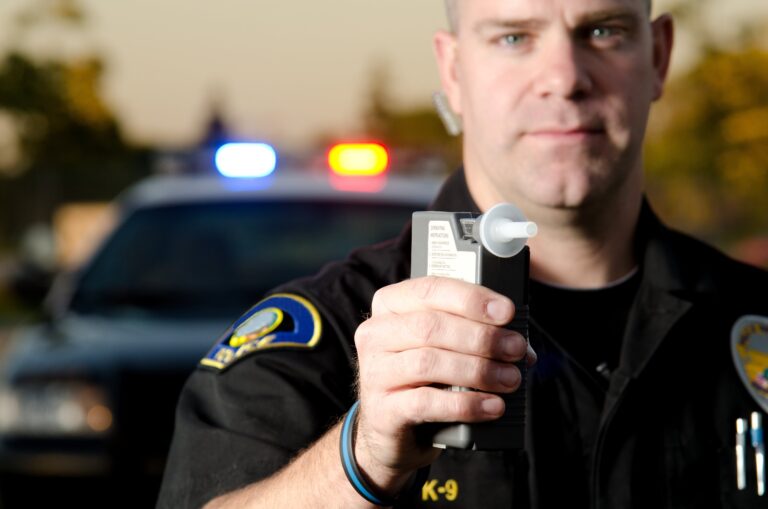Summary
The role of digital evidence in DUI defense is expanding at a rapid pace, reshaping how cases are argued and decided in Illinois courtrooms. As police departments integrate more technology into traffic stops and DUI investigations, the evidence available to both the prosecution and defense has evolved far beyond traditional breathalyzer tests and field sobriety assessments. Today, bodycam and dashcam footage, breathalyzer device logs, GPS data, and even social media activity can all play a role in a DUI case.
For individuals facing DUI charges, digital evidence can either work against them or become a powerful tool in their defense. The challenge lies in understanding how this evidence is used, how reliable it is, and how it can be contested. As a DUI defense attorney with decades of experience in Illinois courts, Andy Sotiropoulos has developed strategies to scrutinize digital evidence, ensuring that it meets the strict legal and technical standards required for admissibility.
DUI Defense: Digital Evidence is Changing the Game in Illinois
The role of digital evidence in DUI defense is expanding at a rapid pace, reshaping how cases are argued and decided in Illinois courtrooms. As police departments integrate more technology into traffic stops and DUI investigations, the evidence available to both the prosecution and defense has evolved far beyond traditional breathalyzer tests and field sobriety assessments. Today, bodycam and dashcam footage, breathalyzer device logs, GPS data, and even social media activity can all play a role in a DUI case.
For individuals facing DUI charges, digital evidence can either work against them or become a powerful tool in their defense. The challenge lies in understanding how this evidence is used, how reliable it is, and how it can be contested. As a DUI defense attorney with decades of experience in Illinois courts, Andy Sotiropoulos has developed strategies to scrutinize digital evidence, ensuring that it meets the strict legal and technical standards required for admissibility.
Table of Contents
Digital Evidence in DUI Cases
Digital evidence now plays a central role in many DUI cases, offering both prosecutors and defense attorneys new ways to argue their positions. Dashcam and bodycam footage have become critical in determining whether an officer had probable cause for a traffic stop or if a field sobriety test was administered properly. In some cases, this footage contradicts the official police report, revealing inconsistencies that can call an officer’s testimony into question.
Breathalyzer devices also generate digital records that can be examined for accuracy. These machines require regular maintenance and calibration, and their logs provide a record of past test results and any potential malfunctions. If a breathalyzer was not properly maintained or if the test was conducted incorrectly, the results could be deemed unreliable, weakening the prosecution’s case.
Social media and mobile phone data have also made their way into DUI investigations. In some instances, prosecutors have used social media posts to establish a timeline of events leading up to an arrest. However, this type of evidence is not always as conclusive as it seems. A post showing a person at a bar earlier in the evening does not necessarily prove intoxication at the time of driving, and context is often missing from digital snapshots of someone’s night.
How Illinois Law Sees Digital Evidence in DUI Cases
Illinois courts recognize digital evidence, but for it to be admissible, it must meet specific legal standards. It must be relevant to the case, properly authenticated, and proven to be reliable. If any of these elements are in question, an attorney can challenge the evidence and, in some cases, have it excluded from trial.
The reliability of digital evidence is often a key issue in DUI cases. Breathalyzer devices, for example, can produce inaccurate readings if they are not calibrated correctly or if the officer administering the test fails to follow proper procedures. Video evidence, while often helpful, is not always complete. A dashcam recording may not capture everything that occurred during a traffic stop, and gaps in footage can raise concerns about how the evidence is being presented.
For DUI defense attorneys, knowing how to analyze and challenge digital evidence is critical. Andy Sotiropoulos has successfully used digital evidence to expose flaws in DUI prosecutions, whether by proving that a breathalyzer reading was faulty, demonstrating inconsistencies in an officer’s report, or showing that video footage does not support the prosecution’s claims.
The Challenges & Opportunities of Digital Evidence
While digital evidence can strengthen a DUI defense, it also presents challenges. One of the biggest concerns is ensuring that the evidence is being interpreted correctly. Video footage, for example, is often used to support an officer’s observations, but those observations can be subjective. What an officer sees as signs of impairment—such as a driver appearing unsteady or speaking slowly—may have an alternative explanation unrelated to alcohol or drug use.
Breathalyzer data also requires careful scrutiny. If a machine has a history of malfunctions, or if records show it was not calibrated correctly before the test, its results may be unreliable. In some cases, defense attorneys have uncovered records showing that a breathalyzer used in multiple DUI arrests had persistent accuracy issues, leading to charges being dismissed.
On the other hand, digital evidence can be a valuable tool for the defense. Dashcam footage has helped clear individuals who were wrongfully accused by showing that they performed field sobriety tests correctly or that the officer’s reason for the traffic stop was questionable. In one recent case, breathalyzer maintenance logs revealed that a device had not been calibrated for over a month prior to the test, casting doubt on the accuracy of the results and leading to the dismissal of charges.
Strong DUI Defense Requires a Knowledge of Digital Evidence
With digital evidence playing an increasingly important role in DUI cases, having a defense attorney who understands both the legal and technical aspects of this evidence is essential. An attorney must know how to obtain digital records, analyze them for inconsistencies, and challenge any evidence that does not meet legal standards.
Andy Sotiropoulos has built a reputation for his thorough approach to DUI defense, particularly when it comes to examining digital evidence. His understanding of breathalyzer technology, video evidence, and legal standards allows him to challenge weak or improperly presented evidence, giving his clients the best possible chance at a favorable outcome.
For those facing DUI charges, the presence of digital evidence in a case does not mean a conviction is inevitable. In fact, when properly examined and challenged, digital evidence can often reveal weaknesses in the prosecution’s case. The key is having a defense attorney who knows how to use this evidence effectively.
Frequently Asked Questions on Digital Evidence in Illinois DUI Cases
Can digital evidence be challenged in court?
Yes. If the evidence is unreliable, improperly obtained, or does not meet authentication standards, it can be challenged and potentially excluded from the case.
How can dashcam footage help my DUI defense?
Dashcam footage can provide an objective record of a traffic stop, which may contradict an officer’s testimony or show that field sobriety tests were performed correctly.
Are breathalyzer results always accurate?
Not necessarily. If the device was not calibrated correctly or if there were errors in how the test was administered, the results may not be reliable.
Can social media posts be used against me in a DUI case?
In some cases, prosecutors may try to use social media posts to establish a timeline of events. However, these posts do not always provide full context and can sometimes be challenged.
Take Control of Your DUI Defense
If you have been charged with a DUI in Illinois, understanding how digital evidence may impact your case is critical. Whether it’s video footage, breathalyzer data, or other digital records, this evidence can be challenged if it does not meet legal standards.
Andy Sotiropoulos has the experience and knowledge to navigate the complexities of digital evidence in DUI cases. If you need a defense strategy tailored to your case, contact Andy today at [insert contact information] or visit illinois-dui-defender.com to schedule a consultation.






